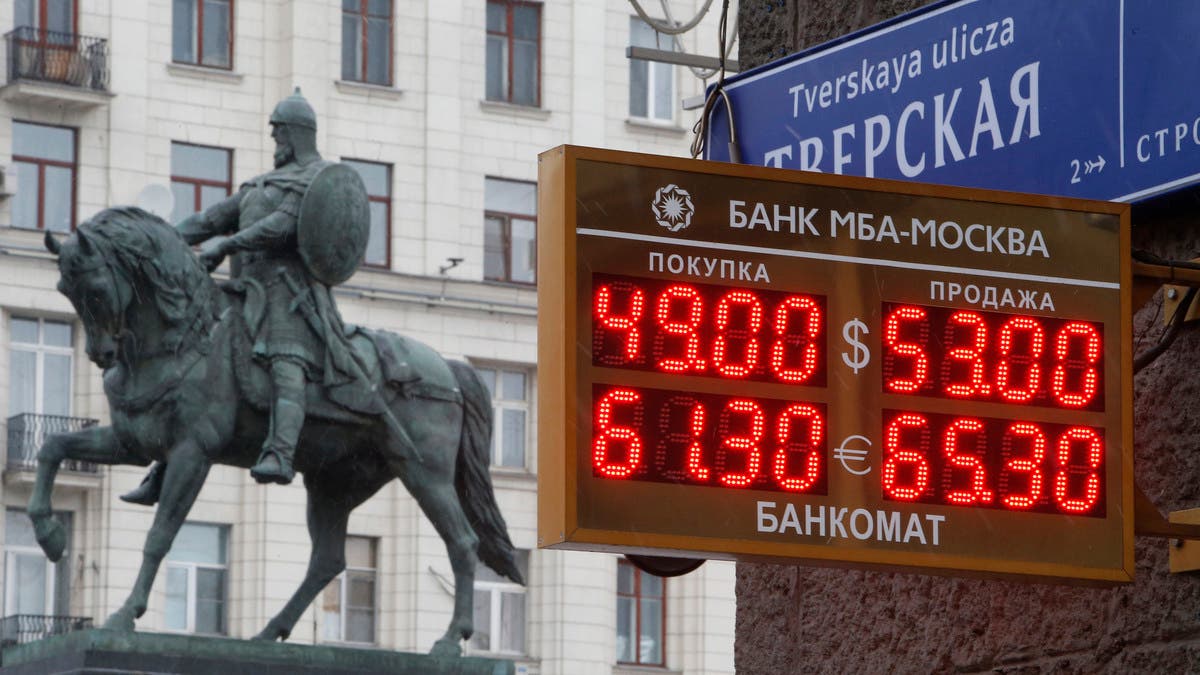Russia is reopening its stock market for limited trading nearly one month after shares plunged and the exchange was shut down following the invasion of Ukraine.
There will be heavy restrictions on trading Thursday as the exchange opens to prevent the kind of massive selloff that took place on February 24 in anticipation of crushing financial and economic sanctions from Western nations.
The reopening of the Moscow exchange has only minimal significance for investors outside Russia and scant economic impact compared with barrage of US-led sanctions and withdrawals by foreign corporations.
The average exposure by a US investor through a mutual fund or retirement account to Russia is exceedingly small, according to Ben Johnson, director of global ETF research at Morningstar.
For the latest headlines, follow our Google News channel online or via the app.
“If someone is holding a traditional 60 percent stock, 40 percent bond portfolio matched to a global index, their exposure to Russia would be roughly 0.02 percent of their portfolio,” Johnson said. “Russia barely registers.”
Hundreds of US, European and Japanese companies have pulled out of the country; there have been bank runs and panic buying of staples like sugar; and Russia’s currency, the ruble, has languished.
Under the restrictions in place, foreign shareholders will be unable to sell shares — a rule imposed to counter Western sanctions against Russia’s weakening financial system and currency.
Trading will be allowed in 33 of the 50 companies that are part of the country’s benchmark MOEX index, including air carrier Aeroflot, state-owned gas producer Gazprom and the oil company Rosneft, according to a central bank announcement about the reopening.
Stocks last traded in Moscow on February 25. A day earlier the MOEX sank 33 percent after Russian forces invaded Ukraine.
Investor sentiment could be difficult to judge given the restraints in force. The country has banned short-selling, in which investors essentially bet on stock prices to go down.
Moscow’s stock exchange is tiny, with a market capitalization of about $773 billion at the end of last year, according to the World Federation of Exchanges. That is dwarfed by the New York Stock Exchange, where the total of all equities is roughly $28 trillion.
It took nearly a month for Russia’s central bank to relaunch trading in local government bonds, denominated in rubles.
Average Russians do trade in in Russian stocks: the central bank estimates that roughly 7.7 trillion rubles, equal to roughly $79 billion, of Russia’s stock was owned by retail investors as of late 2021.
Russia’s government may intervene to support its companies and investors. Prime Minister Mikhail Mishustin said March 1 that the country’s National Wealth Fund would purchase up to 1 trillion rubles ($10.2 billion) in Russian shares by the end of the year.
Before the war, foreign investors were showing growing interest in Russian stocks as an emerging markets opportunity. But roughly a week into the war, Russia was removed from emerging markets indexes compiled by MSCI, a division of Morgan Stanley.
MCSI said that after consultation with a large number of asset managers it determined the Russian stock market to be “uninvestable.” That took away a primary incentive for fund managers to invest there.
On March 3, the London Stock Exchange suspended trading in shares of 27 companies with links to Russia, including some of the biggest in energy and finance. The shares lost most of their value prior to the suspension.
For example, shares of the energy company Rosneft dropped from $7.91 on February 16 to 60 cents on March 2, while shares of Sberbank plunged from $14.90 to 5 cents in that same time frame.
Read more:
Russian regulator blocks Google News, cites Ukraine conflict: Report
UK to send 6,000 missiles and $33 million in aid to Ukraine army: PM
New western sanctions to target Russian ‘political figures, oligarchs’: US official

 World3 years ago
World3 years ago
 World3 years ago
World3 years ago
 Business1 year ago
Business1 year ago
 Entertainment7 years ago
Entertainment7 years ago
 World7 years ago
World7 years ago
 Entertainment7 years ago
Entertainment7 years ago






